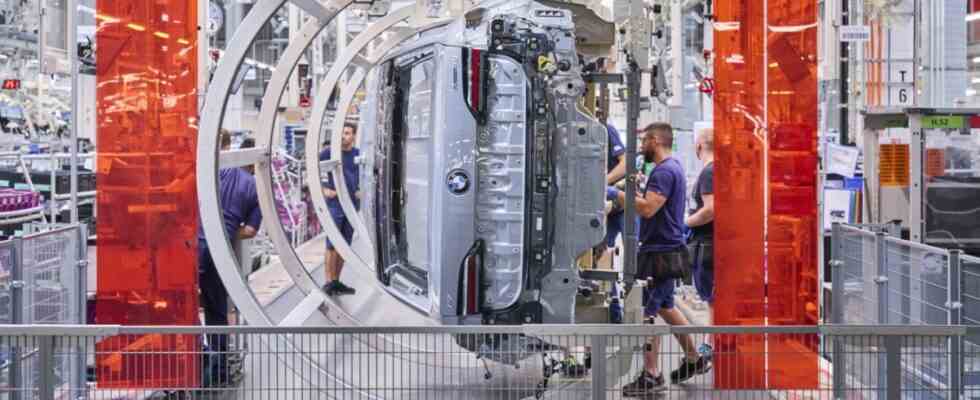The title of the event is almost as cumbersome as the problem that accompanies it. “Regional industrial and structural policy in times of transformation” is the name of the conference at which Bavarian business representatives will also discuss the change in car manufacturing on Wednesday in Berlin. However, one central point is not officially on the agenda: Can the funding project planned for this start at all? At least IG Metall Bayern has doubts about that, as an internal paper shows. According to this, the implementation is at risk – because the employees of some project participants earned more than they should according to federal regulations. The “regional transformation networks” are the most important project to secure tens of thousands of jobs in Bavaria alone, says the Bavarian union boss Johann Horn when asked by the SZ. “If the start of the transformation networks fails now, it would be a major setback for the socio-ecological change in the auto industry in Bavaria.”
So fail before you really get started? Not everyone is as alarmed as IG Metall. Nevertheless, the back and forth about the transformation networks could make a career in the future as an example of a jungle of paragraphs that is difficult to penetrate. And in this case it is particularly dense.
There are transformation networks nationwide, they are something like local alliances between politics and business. Put simply, they include five joint projects and 27 million euros in funding in Bavaria. Among other things, the social partners and their educational institutions should work out what qualifications employees in car manufacturing will need in the future if their old jobs are eliminated due to electric motors and digitization. In Germany, this is coordinated by Bayern Innovativ, an agency of the Free State.
A letter to Federal Minister of Economics Habeck has so far remained unanswered
The funds themselves are approved by the federal government, according to the union paper; however, this has meanwhile tightened the ban on preferential treatment. According to this, the organizations involved could only be funded if none of their employees were “ranked above the limits of the public service collective agreement” – regardless of whether these employees actually worked on the project or not. However, the managing directors of some institutions, for example, earned more. The result: the funding may not be carried out. Therefore, an urgent letter was sent to the Green Federal Minister of Economics Robert Habeck with project partners in September, so far without an answer.
Bayern Innovativ confirmed the letter and the problem. “If the ban on betterment is not observed, the affected project partner cannot receive any funding,” says a spokeswoman. “This can mean a failure of the entire project.” According to the IG Metall paper, there is the possibility of an exemption, but the procedure is complex: the organizations would have to be checked twice, first by the Ministry of Economics and then by the Federal Ministry of Finance.
So complex specifications and a lot of work? This realization seems to have reached others as well. With regard to the ban on better conditions, the Bundestag recently “passed an exception in the budget law,” the Ministry of Economics announced: The Ministry of Finance is responsible for this change, which should solve the problems of some transformation networks. For this reason, Bayern Innovativ is also expected to no longer need a separate permit, but to comply with the ban on preferential treatment from the turn of the year. To what extent the other project participants will also benefit from the new exception to the exception is one of the question marks that they can discuss in Berlin on Wednesday.

